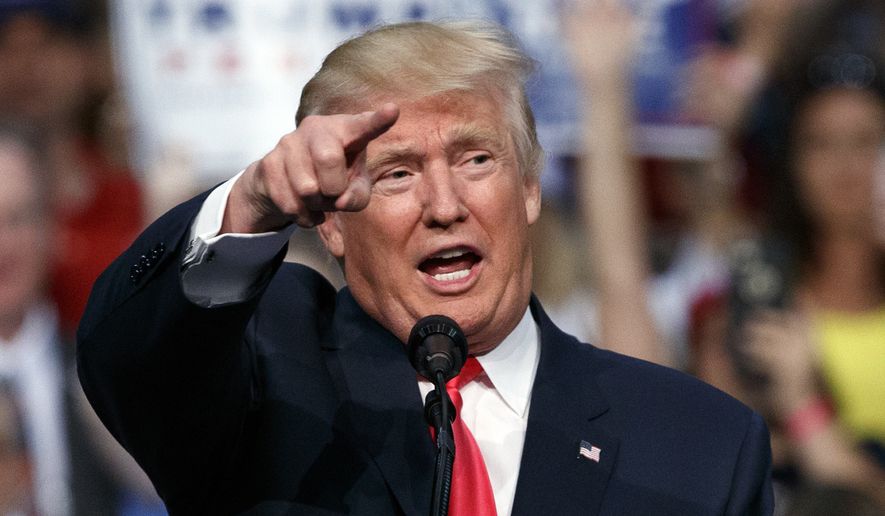OPINION:
Donald Trump has been accused by his critics of having a variety of shortcomings. They complain about his temperament, his crassness and his whimsical approach to the facts.
What they underplay is his most glaring omission — his lack of experience in government.
Most analysts say that Mr. Trump has benefited because he wasn’t a politician until a year ago. Being an outsider has been deemed a major advantage in an angry election year.
But beneath this superficial appeal, the fact that Mr. Trump has never before stood for election, has never worked inside a legislature and has never been a decision-maker in an executive branch agency is nothing to crow about.
His complete lack of government background — other than trying to influence it — is probably a reason he’s been slipping in the polls. Many of Mr. Trump’s mistakes in judgment, tone and issue selection can be traced to the fact that he’s learning about the entity he aspires to lead from a standing start.
He might be wise in the ways of business, but he’s a novice when it comes to operating in a democratically elected government. He’s making rookie mistakes.
Mr. Trump is a marketing mogul, a polished salesman. He also knows how to manage a large, multinational business. He certainly knows how to grab attention and keep it in a world influenced by reality TV, news channels and Twitter.
But that’s not the same as governing, and voters appear to be realizing this. Mr. Trump’s falling poll numbers might be an indication that voters are having doubts about handing the reins of the world’s most powerful government to a person who has never worked in government.
Having some background in facing voters and dealing with public policy is a plus for anyone who wants to do that sort of thing every day at a high level. Usually, top elected officials or appointees have already learned from making many mistakes in lower-level government jobs in the past. People who are brand-new like Mr. Trump have no choice but to make those mistakes on the job.
That’s not a good idea for a president of the United States or for a candidate for president.
He clearly could have used some of this seasoning in recent weeks. For example, no one who has labored in official Washington would invite a rival government (especially Russia) to hack into an American’s email. No one who’s ever worked inside the Pentagon or with soldiers would attack or even publicly question a Gold Star family. And certainly no Republican presidential candidate would withhold re-election support for a former Republican presidential nominee or the Republican speaker of the House.
But Mr. Trump has decided to find these things out the hard way.
If he wins the White House, the learning curve will be even steeper. His need to acquire nuanced understandings will make getting what he wants through Congress more difficult than normal, which is pretty hard, indeed.
On the other hand, Mr. Trump might be self-aware enough to know what he doesn’t know. He might insist on a few important items but would otherwise allow congressional leaders such as House Speaker Paul Ryan to dictate the pace and substance of what goes through Congress.
Mr. Ryan already plans early next year to move through the House his six major policy initiatives, which range from tax reform to national security. Think of this “Confident America” agenda as the modern-day Contract with America, which was approved by the House way back when Newt Gingrich was speaker.
No one expects that all six or even most of Mr. Ryan’s policy prescriptions would be enacted into law. But the bills could become a legislative package ready-made for a neophyte president — even one who has feuded with the speaker. Maybe Mr. Trump can limp through the start of a presidency with such heavy-handed help. And maybe voters will ignore his rookie mistakes to give him the chance for more on-the-job learning at 1600 Pennsylvania Avenue.
• Jeffrey H. Birnbaum is president of BGR Public Relations and a former managing editor-digital of The Washington Times.




Please read our comment policy before commenting.